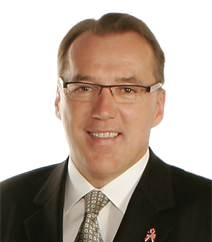What Maslow and Rand Would Tell Investors Today
I have always been fascinated by what motivates people. What motivates Tiger Woods to pursue the goal of being the world’s greatest golfer? What’s the motivation driving Warren Buffett to continue purchasing companies instead of retiring in Tahiti? Or how about the motivation behind the trucks allegedly packed with euros parked in front of the Central Bank in Nicosia?
What is most puzzling is the motivation driving investors to buy or sell their equity positions when research shows that holding an investment over the long-term is more successful than timing the market.
As Business Insider puts it, there’s “proof that [investors] stink at investing.” Its headline is catchy, and the chart shows the evidence, as the average investor has significantly underperformed oil, stocks, gold and bonds in the past 20 years. While, on average, investors returned 2 percent, oil, stocks and gold rose about 8 percent.
After inflation, the average Joe or Jill actually lost money.

You can easily attribute the meager returns to the emotional rollercoaster that drives buying and selling decisions, but to break the pattern of poor performance, it may be better to understand the motivation occurring on a subconscious level.
 Anyone who sat in on a psychology course in university is likely familiar with Abraham Maslow’s classic hierarchy of needs driving human motivation. The most fundamental need is shown at the base of the pyramid. Our physiological needs for food, water, shelter and warmth are of the highest priority. Only after those needs are met, we try to meet our need for safety. After that, we can move to belonging, then our own self-esteem and, only until we feel confident that all those needs are met, can we achieve fulfillment or self-actualization.
Anyone who sat in on a psychology course in university is likely familiar with Abraham Maslow’s classic hierarchy of needs driving human motivation. The most fundamental need is shown at the base of the pyramid. Our physiological needs for food, water, shelter and warmth are of the highest priority. Only after those needs are met, we try to meet our need for safety. After that, we can move to belonging, then our own self-esteem and, only until we feel confident that all those needs are met, can we achieve fulfillment or self-actualization.
I have to thank Christine Comaford, the dynamic presenter and global thought leader on corporate culture and performance optimization, for my proverbial light bulb moment when I connected Maslow’s observations from the 1940s to investors’ reactions to global events today.
I love learning about neuroscience and behavioral finance, so I looked forward to her presentation at a global leadership conference for CEOs that I attended in Turkey. But when I walked into the room, I was impressed with how many like-minded executives were interested in her research and insights.
These executives want to understand why customers buy certain products, why investors sell equities to buy bonds, and why their employees don’t seem to have a level of engagement they once had. Also, I believe leaders want to understand why people don’t feel secure or safe these days.
In a recent post in Forbes, Christine stresses how important it is for people to feel safe, to feel as if they belong and to feel as if they matter before they can get to what she calls the “smart state.” This state is when people have access to all parts of the brain and can respond from choice, rather than the “critter brain,” when one simply reacts in one of three ways: fight, flight or freeze.
The needs for people to feel safe, feel like they belong and feel like they matter “are programmed into their subconscious so powerfully that they literally crave them,” she says.
Her discussion particularly resonates with me today, as I believe governments’ actions around the developed world have perpetuated this lack of feeling safe, inhibiting investors from moving up Maslow’s Hierarchy of Needs and preventing their portfolios from achieving the outstanding returns offered by oil, gold and stocks over the past 20 years.
Now, with the most recent drama created by the triangular powers of the Cyprus parliament, the International Monetary Fund and the European Union, news of Cyprus’ bank seizures is sending shock waves rippling across the entire world. How can investors feel safe when governments have the audacity to confiscate their money?
Ayn Rand warned of such actions in her book, “Atlas Shrugged.” Here’s a snippet that is particularly appropriate today:
“Whenever destroyers appear among men, they start by destroying money, for money is men's protection and the base of a moral existence. Destroyers seize gold and leave to its owners a counterfeit pile of paper. This kills all objective standards and delivers men into the arbitrary power of an arbitrary setter of values.”
And to her, gold was the objective value, “an equivalent of wealth produced,” as paper is only “a mortgage on wealth that does not exist.”
This is precisely why many gold investors were disappointed that the yellow metal didn’t perform well. While gold’s performance in the short term has been counterintuitive, I plan to stick to my own advice. I simply feel safer with a small weighting in gold as insurance.
********
U.S. Global Investors, Inc. is an investment management firm specializing in gold, natural resources and emerging markets opportunities around the world. The company, headquartered in San Antonio, Texas, manages 13 no-load mutual funds in the U.S. Global Investors fund family, as well as funds for international clients.
For more updates on global investing from Frank and the rest of the U.S. Global Investors team, follow us on Twitter atwww.twitter.com/USFunds or like us on Facebook at www.facebook.com/USFunds. You can also watch exclusive videos on what our research overseas has turned up on our YouTube channel at www.youtube.com/USFunds.






 Frank Holmes is the CEO and Chief Investment Officer of
Frank Holmes is the CEO and Chief Investment Officer of 









